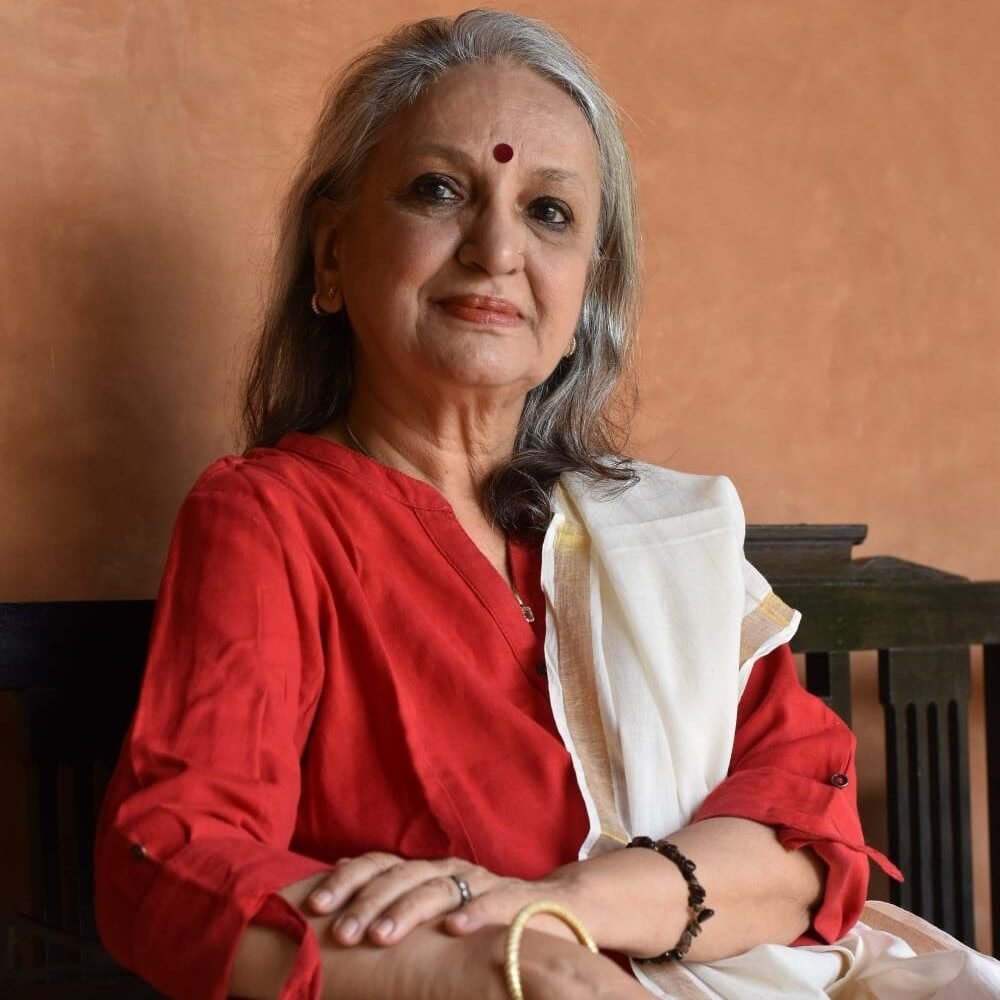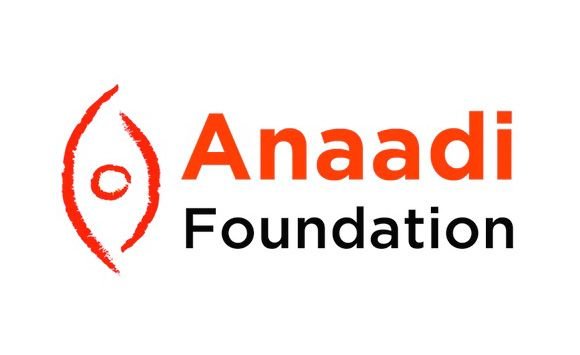“In India, I realized that the ideal could be that India becomes the voice for humanity — where you see the vibrancy of people practicing Ayurveda, practicing Yoga, living their civilizational, cultural values, which is slowly happening post-pandemic. It is slowly happening.”
WHAT ARE THE SCIENCES OF AYURVEDA AND YOGA AND HOW DO THEY RELATE TO WELLBEING?
Ayurveda, as they describe it, is a manual of life skills. It’s not just a medicinal system. It’s Veda- knowledge of ayu. Ayu is life. Ayurveda actually describes Life, and the beauty of Ayurveda is that it is for everyone. It’s not only for Indian people. It’s not for the people from a certain region, but the Sages talked about humanity at large. They say that our life has purpose and meaningfulness and to achieve that, there are paths, right?
The path begins with dharma, a Sanskrit word coming from the etymology Dharayati Iti Dharma. Meaning, anything that sustains you, holds you together, is dharma. I feel it’s a beautiful way to look at our life. It’s only psychology that has taken more than 200 years to reach positive psychology where Martin Seligman and others are talking about meaningfulness. And here there are sages many, many millennia ago who wrote about how life has to be meaningful for us to be healthy and happy. They describe life as Hita, beneficial to self and others, because they always saw life as a continuum: we and the Cosmos, we and everyone else, are interconnected. And only when we are leading a life which is interconnected and integral, can we be happy. And happiness is, not the pursuit of happiness that we understand today in a modern language, but it’s all about the State of Being. With the wellbeing crises that we see today, I realize that Ayurveda beautifully connects the wellbeing of the planet and wellbeing of an individual.
With the wellbeing crises that we see today, I realize that Ayurveda beautifully connects the wellbeing of the planet and wellbeing of an individual.
WHAT DO AYURVEDA, YOGA AND OTHER INDIAN SCIENCES TELL US ABOUT NEUROSCIENCE, EMOTIONS, AND HEALING?
What Yoga, Ayurveda, and the science of Aesthetics are talking about is being rediscovered and not just rediscovered, it’s being validated scientifically by some modern theorists. Today a lot of scientists talk of neurotransmitters, et cetera, but they look at only the brain. If you revisit our biology or anatomy from a Yogic perspective, our physical body that can be seen and studied or x-rayed is one reality, but we are also energy sheets.
So we are still stuck learning biology and anatomy from a Newtonian or Cartesian perspective dividing body and mind. But what is mind? People are still struggling to understand it. While in Ayurveda and Yoga, the body-mind continuum is very beautifully described. We have seven chakras, the major chakras, and many minor chakras. And I’m glad today chakra, like mantra and dharma, is a word in Western vocabulary as well. These are what Georgetown University neuroscientist Candace Pert talks about nodal points of neurotransmitters. The neurotransmitters on those nodal points of the chakras are either blocked or they are open. So when they are blocked, naturally the energy flow is restricted and therefore the energy or Prana does not reach those organs which are connected with those nodal points. She was one of the, I think, first Western scientists to say that body and mind is a continuum.
HOW CAN THIS KNOWLEDGE HELP US WITH HEALING FROM TRAUMA?
So when I go back to Yoga and Ayurveda as ancient sciences as I said, “If we all are integrated, we all are connected, then my energy and the world’s energy is somewhere merging together, right?” Energy, we all know, cannot be created or destroyed. It needs to be transformed. So when we look at trauma, trauma is an energy block as I see it personally. If it’s a blocked energy, then which chakra is it impacting? Is it impacting your security? Is it impacting your relationships? Is it about your power or victimhood? Is it about your heart experiencing gratitude or is it about your heart experiencing a closed xenophobic existence where you switch on to a survivalistic mode? This is what scientifically people talk about trauma and the response to trauma as fight, flight, or freeze. But that fight, flight, freeze is not just limited to the brain. It travels all over the body. So, if my mind is in every cell of my body, then my trauma response is also coming from every cell in my body. It’s not only a cognitive skill.
This is where Yoga and Ayurveda come into play because they have a lot of practices which can help you dissolve these traumatic emotional imprints without wanting to bring them up to the brain, which is not able to cope.
And they can be dissolved with a lot of Ayurvedic treatments, Ayurvedic lifestyle guidance meditations and Yogic lifestyle. And when I say Yoga, it’s not just exercise or breathing exercises or physical postures. Patanjali’s Yoga Sutras, one of the oldest texts of Yoga talks of Yama and Niyama, which are the behavioural codes at the individual level and collective level. So unless we practice them, doing breathing exercises and doing postures will not give us results.
DO INDIAN SCIENCES TELL US HOW INTERGENERATIONAL TRAUMA AND ECOLOGICAL BELONGING ARE CONNECTED?
In all ancient indigenous cultures, I found one thing common is, apart from being connected with nature, they’re also connected with their ancestors. Our history, our ancestors, are living within us, not just genetically, but psychologically and spiritually. Ancestor healing is a major ritual in most of the indigenous cultures, including India. In India, we have birth charts. The moment you are born, depending on the time of the birth, a birth chart for every child is created. Most of the birth charts have a problem with ancestors. It’s called Pitru Dosha. Pitru are ancestors and Dosha is some problem. Now, obviously, we really don’t know what our ancestors were going through, right? Beyond a certain generation, we don’t even know our ancestors. And we don’t even know what their life was. We don’t even know what trauma they went through. But whatever their trauma, we have inherited it and the trauma of Mother Earth. That’s also an ancestral trauma. There are a lot of rituals connected with the five elements – the element of sky or ether or Akaash; the element of air or Vayu; Fire; Water; and Earth – because many ancient indigenous cultures believe that the entire universe and our body all are made up of these five elements.
WHAT IS AN EXAMPLE OF AN INDIAN PRACTICE ONE CAN DO TO WORK ON INDIVIDUAL AND COLLECTIVE HEALING?
One ritual we have is ending all the prayers with saying, “Shanti hi, Shanti hi, Shanti hi.” Shanti means peace. Why do all prayers end with saying peace three times? Just one time could have been enough. The three “peace” is invoking peace at three levels: one, individual, me and myself; two, collective, which is the community around me, society, Nature around me, my nation; and three, the global level and Universal level.
Today, when there are wars happening, when there is so much destruction happening, when there is so much human suffering, working on peace and giving it priority is very important. I realized that, unfortunately, most of the Western researchers define peace as an absence of war or conflict. Peace is not seen as a positive construct in itself, which is there in India. In Indian literature, in Indian philosophy, peace is a positive construct. Health is a positive construct. Health is not as opposed to disease and peace is not opposed to war or conflict. So, if peace is a construct in itself, how do you arrive at it? How do you actually start experiencing peace from within? And chanting mantras, chanting simple Om, is one way.
Why do all prayers end with saying peace three times? The three “peace” is invoking peace at three levels: one, individual; two, collective ; and three, the global level and universal level.
YOU’RE DESCRIBING HOW MODERN SCIENCES ARE “VALIDATING” TRADITIONAL SCIENCES. DOES THIS MEAN THEY ARE THE SAME?
We talk of ancient or indigenous wisdom at one level and modern at another. And a lot of people have this misconception that ancient is outdated and modern is more scientific, or modern is the complete know-how. Unfortunately – or fortunately – we realize that what is ancient is being rediscovered by many modern theorists. So we as humanity, we just have to take a U-turn and go back to our own cultural roots, civilizational roots. I realize that most of the indigenous cultures, they were connected and rooted in nNature. I’ve been to Hawai’i. I’ve met some of the Kahunas, the wisdom holders. And one of the Kahuna, I still remember, she held my hands and she said, “You are one of us.” I realized that she felt that and I felt that because of the Mother Earth. We could have lived in different lifetimes. We could have lived in different geographical locations, but ultimately, it’s all One.
I’ve been to Hawai’i. I’ve met some of the kahunas, the wisdom holders. And one of the Kahuna, I still remember, she held my hands and she said, “You are one of us.” I realized that she felt that and I felt that because of the Mother Earth.
IN FACING OUR 21ST CENTURY CHALLENGES, WHAT ROLE DO YOU THINK SPIRITUALITY AND THIS ANCIENT WISDOM CAN PLAY IN THE SOLUTIONS?
The industrial revolution has uprooted people from nature. Nature has become a resource to be used and exploited. People became a resource that needs to be used and exploited and we didn’t realize that we ourselves became this resource. This trauma needs to be addressed because today, corporates have to wake up to the spiritual aspect, which is not a philosophical aspect, it is a practical aspect. Most of the United Nations Sustainable Development Goals are far away from being met.
When we are spending so much money on sustainability goals, climate change, et cetera, what we don’t realize is, we just need to bring back that foundation of spirituality, Dharma, in everything we do. And the moment that foundation comes back, everything will fall into place. Right now, we have lost the bigger picture. We are all struggling with pieces of puzzles, trying to fit them here and there. But spirituality is like a bigger picture, and without looking at that bigger picture, we are not able to fit in those pieces of the puzzles.









































